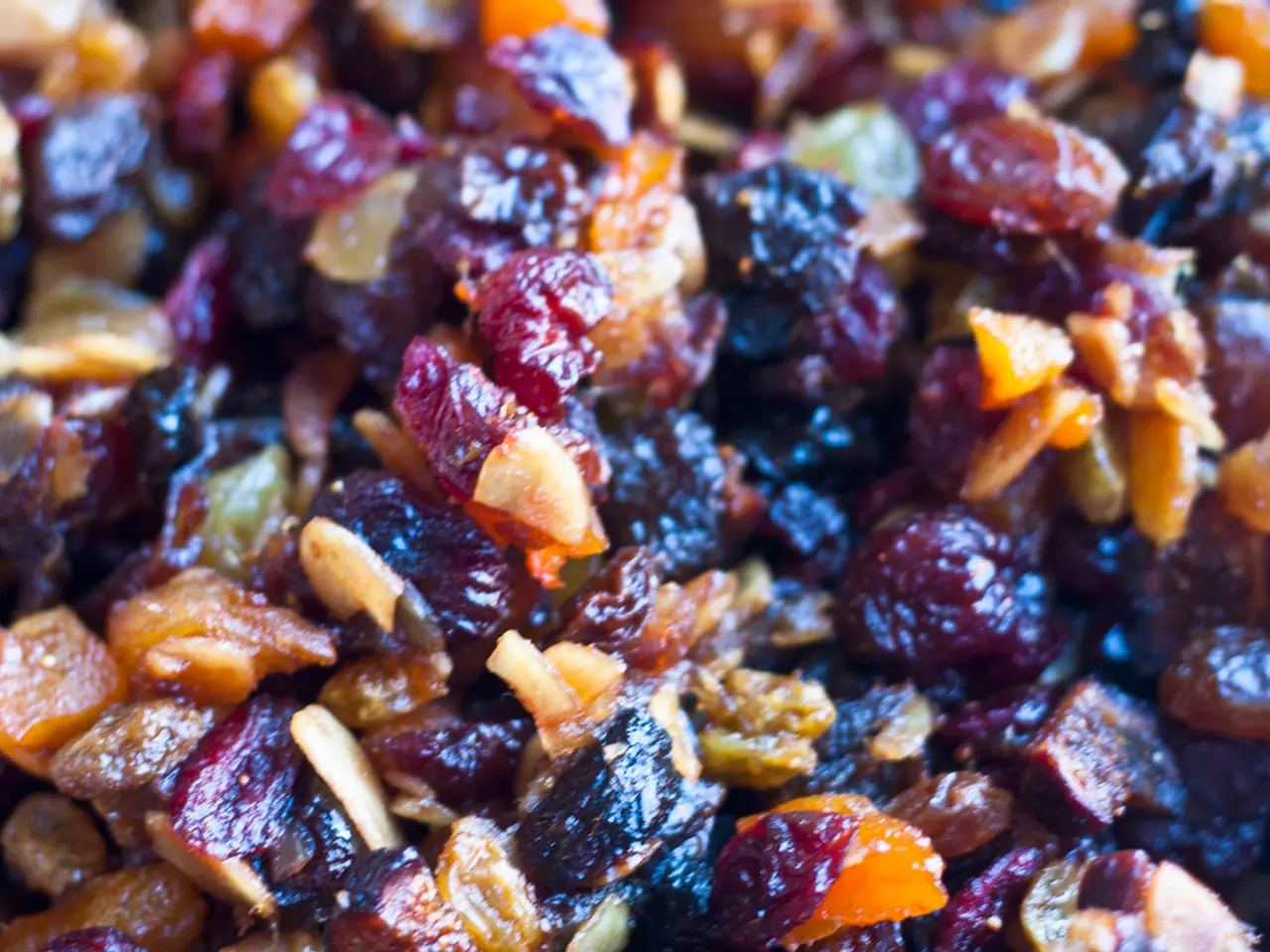Nutritious options to foster brain growth in children:
Food plays a vital role in supporting children's brain development, concentration, and learning. Here's a look at some foods that contain essential nutrients for children's brain function and development.
Nuts and seeds, such as walnuts and almonds, are rich in omega-3 fats and protein, which help build brain cells and improve memory and concentration[1]. Milk, cheese, and yogurt provide B vitamins, protein, and calcium, which keep the nervous system healthy, aid concentration, and support brain signal transmission[1][3]. Whole grains like brown rice, oats, and whole wheat release energy slowly to keep children alert and maintain stable blood sugar, reducing attention lapses[1].
Fatty fish like salmon and sardines are excellent sources of DHA, a crucial omega-3 fatty acid that forms a major part of brain structure and supports cognitive development, focus, and immune function[2][3]. Eggs offer protein, choline, and vitamin B12, essential for memory development and protecting brain cells[3]. Leafy greens supply iron, folate, vitamin K, and antioxidants that promote mood regulation and neuronal growth[3][5].
Red lentils, with their soft consistency, are suitable for younger children and are a good source of zinc, essential for brain development and childhood[4]. A cup of cooked lentils contains half the daily zinc requirement for a child aged 4-8 years old. Beans and lentils also contain zinc, making them beneficial additions to a child's diet.
Greek yogurt, particularly unflavoured varieties, contains probiotics that support a healthy microbiome, beneficial for brain development[4]. Porridge oats are low GI foods, beneficial for cognitive function during the school morning. A small study found that eating a low GI breakfast improved cognitive function in 12-14-year-olds.
A diet high in refined sugars and saturated fat may increase the risk of hyperactivity and attention deficit hyperactivity disorder (ADHD). It's important to ensure a balanced diet that includes a variety of fruits, vegetables, lean proteins, and whole grains.
When it comes to snacks, carrot sticks and hummus, mashed avocado on oatcakes, protein balls made from oats, cocoa powder, and nut butter, a butterbean and herb dip with whole-grain pita slices, and a trail mix made from unflavored nuts, seeds, and coconut chips are all great options for when children are studying.
For breakfast, consider options like a boiled or scrambled egg with whole-grain toast fingers, porridge oats with nut butter or berries, and a whole-grain bagel with salmon and avocado.
The first three years of a child's life are critical for brain development. By providing a balanced and nutritious diet, we can help optimize brain development, potentially leading to long-term benefits for a child's education, job potential, and adult mental health.
References:
[1] Harvard Health Publishing. (2014). Good fats, bad fats. Retrieved from https://www.health.harvard.edu/staying-healthy/good-fats-bad-fats
[2] American Psychological Association. (2010). Omega-3 fatty acids: What parents need to know. Retrieved from https://www.apa.org/pi/families/resources/children-learning-disabilities-omega3s.aspx
[3] National Institute of Mental Health. (2020). Brain development. Retrieved from https://www.nimh.nih.gov/health/topics/brain-development/index.shtml
[4] British Nutrition Foundation. (2021). Omega-3 fatty acids. Retrieved from https://www.nutrition.org.uk/healthyliving/basics/omega-3-fatty-acids.html
[5] National Institutes of Health. (2020). Folate. Retrieved from https://ods.od.nih.gov/factsheets/Folate-HealthProfessional/
- Hyperglycemia, associated with a diet high in refined sugars, may increase the risk of attention deficit hyperactivity disorder (ADHD) in kids.
- Science proves that nuts and seeds, like walnuts and almonds, are beneficial for kids' brain development due to their omega-3 fats and protein content.
- Pfizer's research indicates that DHA, found in fatty fish like salmon and sardines, is essential for cognitive development, focus, and immune function.
- A balanced health-and-wellness diet, including foods like milk, cheese, and yogurt, is crucial for keeping kids' brains healthy and aiding their concentration.
- As per the British Nutrition Foundation, red lentils, particularly rich in zinc, play a crucial role in young children's brain development.
- Fitness-and-exercise, combined with a nutrient-rich meal like Greek yogurt and oats, can support brain development and protect children's cognitive function as they grow.




